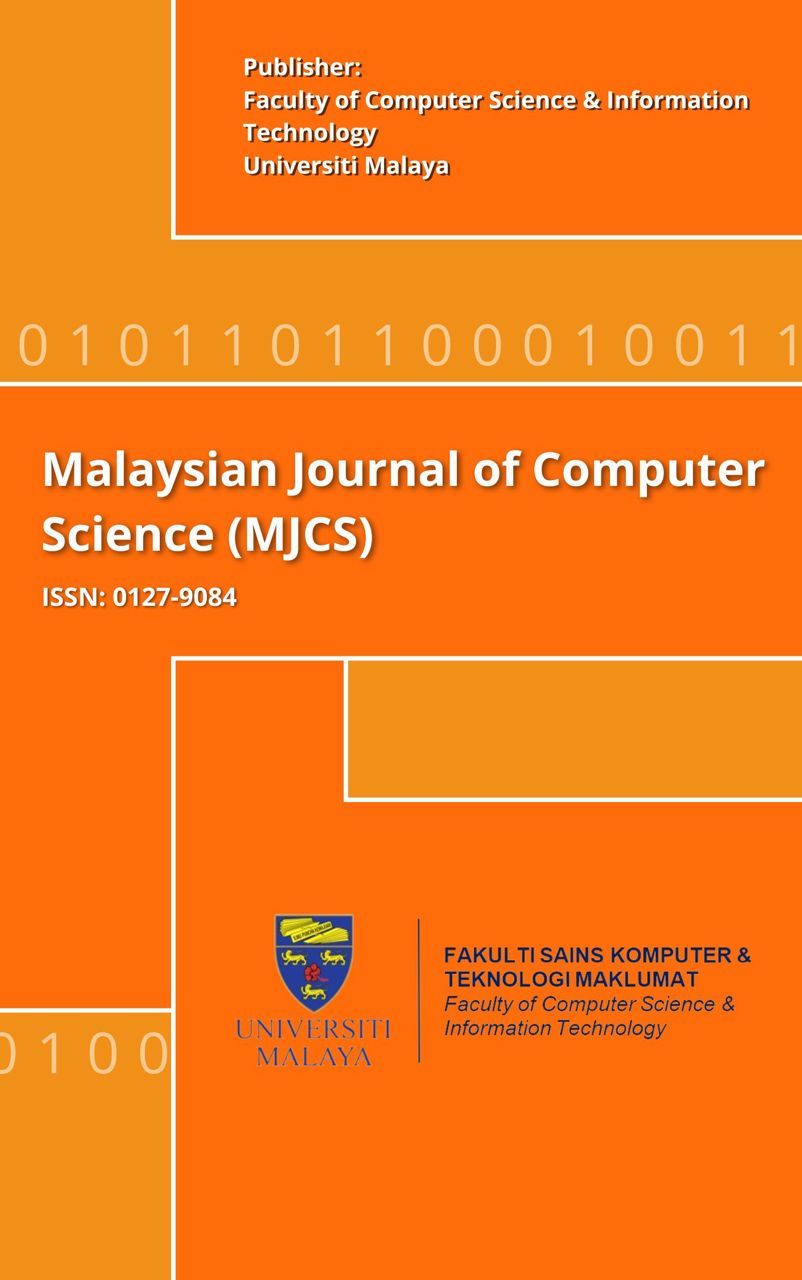USABILITY TESTING ON MOTIONMOUSE: A PROTOTYPE TO CONTROL ANDROID TABLET USING EMOTIV EPOC+
DOI:
https://doi.org/10.22452/mjcs.sp2019no3.5Keywords:
Human-computer interaction, Android, Mobile interaction, Usability test, Brain-computer interfaceAbstract
Portable brain-computer interfaces (BCI) headsets that available today in the market provides users with unique ability and experience to interact with their mobile phones and tablets. Researchers try to use BCI outside the labs by implementing and developing applications for BCI mostly on Android platform, which are of different types and purposes, such as communication purposes, controlling external devices and for entertainment such as games. But typically, those BCI related applications are somewhat limited in terms of their scope of control, i.e. the users can only interact with one application at a time and cannot switch to other application without touching the device screen. This paper addresses the development of a MotionMouse, a prototype that provides users with an alternative to fully interact and control an Android tablet by controlling not just one, but many different application types. The evaluation of the prototype was based on ISO 9241-11:2018 standards with a result that demonstrate the ability of controlling and generating touch events on the device using Emotiv EPOC+ with effectiveness of 63.82% (accuracy of the correct target) and efficiency of 3.22 clicks per minute. In addition, the participants also found that it was easy to perform the tasks with few showed excitements during the experiment.






